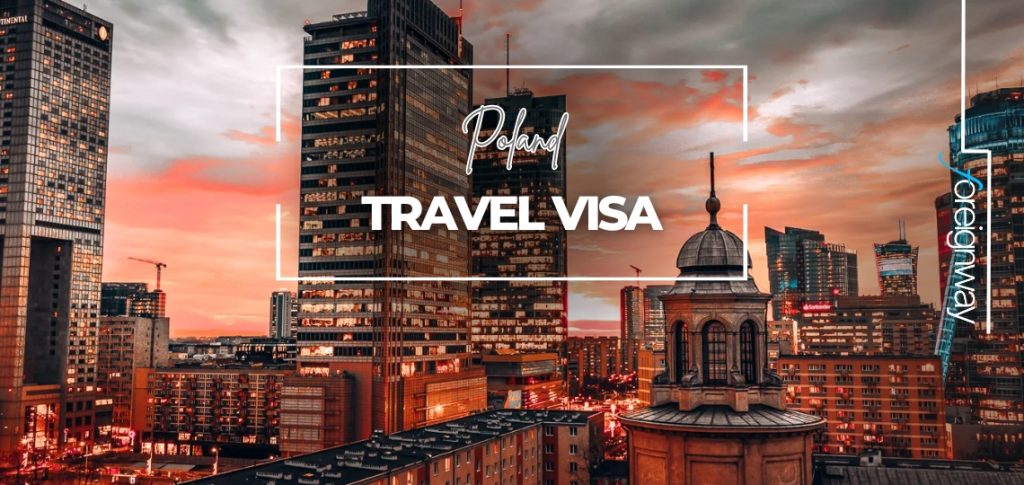Poland Travel VISA: 5 Expert Tips for 2025

Securing your Poland travel VISA is the key to exploring Warsaw’s historic charm, Krakow’s medieval squares, and the pristine landscapes of the Tatra Mountains. With updated 2025 Schengen VISA regulations, this guide provides actionable tips to streamline your application, avoid delays, and ensure approval. Whether you’re visiting for tourism, business, or family reunions, these insights will help you navigate the process smoothly.
Table of Contents
1. Poland Travel VISA Process:
The Poland travel VISA is part of the Schengen VISA system, allowing stays of up to 90 days within 180 days. Key VISA types include:
- Tourist VISA: For sightseeing, festivals, or visiting friends.
- Business VISA: Attending conferences, meetings, or contract work.
- Transit VISA: For layovers en route to non-Schengen countries.
Always confirm your VISA type based on your travel purpose to avoid rejections.
2. 2025 VISA Costs and Fees:
Budgeting for your Poland travel VISA involves:
- Standard Fee: €80 for adults, €40 for children (6–12 years).
- Additional Costs:
- Service fees at VISA centers (€20–€40).
- Travel insurance (minimum €30,000 coverage).
- Document translation (if required).
Verify fees on Poland’s official VISA portal before applying.
3. Required Documents for a Poland Travel VISA:
Prepare these essentials for a seamless Poland travel VISA application:
- Valid passport: 2 blank pages + 3 months validity post-trip.
- Completed application form: Signed and dated.
- Passport photos: 2 biometric-compliant (35x45mm, white background).
- Proof of accommodation: Hotel bookings or a host’s invitation letter.
- Financial proof: Bank statements (€50–€75/day of stay).
- Travel insurance: Must cover all Schengen countries.
4. Eligibility Criteria:
To qualify for a Poland travel VISA, you must:
- Have a clean criminal record.
- Prove strong ties to your home country (employment, property, family).
- Submit a detailed itinerary with return flight tickets.
- Show no prior Schengen VISA overstays.
5. 5 Expert Tips for a Successful 2025 Application:
1. Apply Early, But Strategically
- Submit your Poland travel VISA application 3–4 months before travel.
- Avoid peak seasons (summer, holidays) when consulates are overloaded.
- Track your application via the e-Konsulat portal.
2. Perfect Your Documentation
- Ensure all documents are translated into Polish or English by certified translators.
- Match names and dates across passports, bookings, and invitation letters.
- Use a cover letter to explain your trip’s purpose (e.g., “Attending the Krakow Film Festival”).
3. Ace the VISA Interview
Prepare answers for questions like:
- “Why Poland?” → Highlight specific plans (e.g., touring Wawel Castle).
- “Who’s funding your trip?” → Reference bank statements or sponsorship letters.
4. Prioritize Travel Insurance
Choose policies that explicitly mention “Schengen coverage.” Providers like Allianz or AXA are widely accepted.
5. Leverage Local Consulate Resources
- Attend free pre-application workshops offered by some Polish consulates.
- Download checklists from the consulate’s website to avoid missing documents.
6. Common Mistakes to Avoid:
- Inconsistent Financial Proof: Sudden large deposits raise red flags. Maintain steady account balances.
- Generic Itineraries: Vague plans like “sightseeing in Warsaw” lack credibility. Include booked tours or event tickets.
- Ignoring VISA Conditions: Overstaying by even one day can ban you from future Schengen VISAS.
7. 2025 Updates to Poland’s VISA Policies:
- Digital Applications: Expanded e-VISA trials for tourist VISAS.
- Biometric Expansion: More consulates requiring fingerprints for first-time applicants.
- Eco-Tourism Focus: Priority processing for travelers with green itineraries (e.g., visiting Białowieża Forest).
Simplify Your VISA Journey with Foreignway.com
Checking the Poland travel VISA process can be daunting. Foreignway.com offers end-to-end support—from document checks to interview coaching—ensuring your application stands out. Focus on planning your Polish adventure; we’ll handle the paperwork.
Disclaimer: Poland’s VISA fees and requirements are subject to change. Always confirm details through the Polish Ministry of Foreign Affairs or your local consulate.
